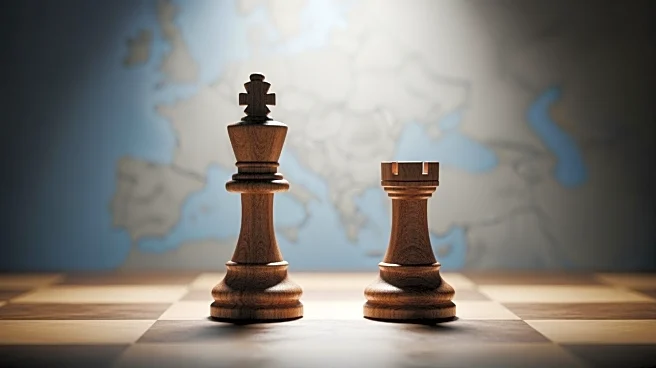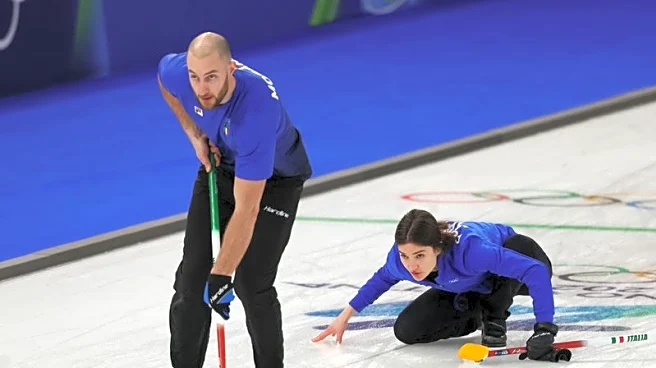What's Happening?
EU leaders are contemplating granting airspace exemptions to allow Russian President Vladimir Putin to attend a proposed summit with President Trump in Budapest. The meeting aims to address the ongoing
conflict in Ukraine. Due to EU sanctions, Russian aircraft are currently banned from flying over EU airspace, complicating travel plans for Putin. Hungary, hosting the summit, is unlikely to enforce an International Criminal Court warrant against Putin. The summit is part of efforts by Hungarian Prime Minister Viktor Orbán to maintain friendly relations with both leaders.
Why It's Important?
The potential summit between President Trump and President Putin is significant as it represents a diplomatic effort to address the prolonged conflict in Ukraine. The EU's consideration of airspace exemptions underscores the complexities of international diplomacy and the challenges of balancing sanctions with diplomatic engagements. The meeting could influence EU-Russia relations and impact the broader geopolitical landscape, particularly in terms of energy security and regional stability. Hungary's role as host highlights its strategic position in EU politics and its unique diplomatic ties with both the U.S. and Russia.
What's Next?
If the summit proceeds, it could lead to new diplomatic initiatives aimed at resolving the Ukraine conflict. The EU's decision on airspace exemptions may set a precedent for future diplomatic engagements with sanctioned countries. The outcome of the summit could influence EU and U.S. policies towards Russia and impact ongoing discussions about sanctions and energy security. Observers will be watching for any agreements or statements resulting from the meeting, which could signal shifts in international relations.










